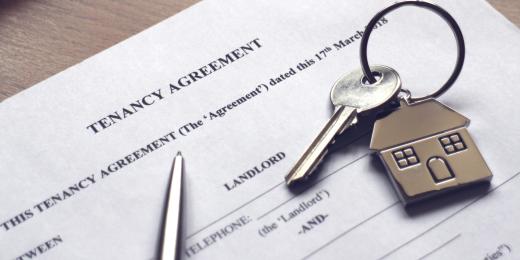What is the difference between a tenancy agreement and a licence?

You may not think it makes much difference whether you have a tenancy agreement or a licence. However, if things don’t go according to plan, and you need landlord and tenant legal advice your legal status as a tenant or licensee can make a difference. In this article we look at the difference between a tenancy agreement and a licence.
Landlord and tenant solicitors
If you need legal advice about a landlord and tenant issue then the landlord and tenant team at OTS Solicitors can help you with the best legal advice. Call us on 0203 959 9123 or complete our online enquiry form for an appointment via video conference, Skype or telephone.
What is a licence?
A licence gives an individual personal permission to enter and occupy premises. If permission isn’t granted then entry and occupation would amount to trespass. What a licence doesn’t do is give any legal interest in the property or land. A licence can be for a fixed term or be a periodic licence. There are two different types of licence:
- Bare licence - where you are given permission to live in a property. For example, if you are invited to stay with extended family
- Contractual licence - where a licence is given under a contract. Under a contractual licence normally the person occupying the premises has to pay for the accommodation but the conditions for a tenancy are not created. The contract doesn’t have to be in writing as a contractual license can be created verbally.
Do I have a licence or a tenancy?
Landlord and tenant solicitors say that it isn’t always easy to distinguish between a licence and a tenancy agreement. However, you are more likely to have a licence where:
- There is no intention to enter into a legal relationship or create a tenancy
- You do not have the right to exclusive occupation of the property.
Examples of where there is normally no intention to create a tenancy (even where there is exclusive possession) include:
- Accommodation provided by a charitable organisation on a temporary basis
- Family arrangements where a sibling stays at a property when they are ‘between accommodation’
- Provision of accommodation as part of a job
- Hotel or hostel accommodation.
What is a tenancy?
Landlord and tenant solicitors say that a tenancy is defined as a legal interest in land for a specific period of time. Sometimes the question is asked whether a lease or a tenancy gives a tenant more rights but legally a tenancy and a lease of property mean the same thing. You will however tend to find that landlord and tenant solicitors and letting agents refer to a short occupation as a tenancy whereas a longer period of tenancy (over twenty one years) or a commercial let is referred to as a lease.
What is exclusive possession in a tenancy agreement?
If the difference between a tenancy and a licence depends in part on if exclusive possession is granted then it is important to know what is meant by the term ‘exclusive possession’. The term means more than sole occupation. If a tenant has exclusive possession then they have the right to exclude all persons, including the landlord, from the property. There are exceptions for landlords and access to property in emergency repair situations.
The rented premises can be a tenancy even though the accommodation is shared or is a single room.
Should I take a licence or a tenancy agreement?
If you are wanting to occupy a property or you are a landlord looking at rental options there is no straight answer as to whether a licence or a tenancy is the best option for you. With a licence, the licensee does not get a legal interest in land but instead is given permission to use the property. The licence does not grant exclusive possession.
If a landlord prefers to grant a licence it is best to ensure that the licence document is carefully drafted to ensure that the court would not view the agreement as a tenancy, with unforeseen consequences for the landlord.
Take landlord and tenant legal advice
If you are in any doubt about whether you are granting a tenancy or a licence or you are worried about your status as either a tenant or a licensee the best option is to take specialist legal advice from a landlord and tenant solicitor. They will advise you on the nature of the agreement and, if there is a dispute, offer guidance on how the court will determine whether an agreement is a licence or a tenancy. A court, like a landlord and tenant solicitor, will consider the substance of the agreement rather than its title to assess and interpret the intention of the parties to the agreement.
It is therefore best to avoid disputes over the status of occupation by getting your agreement (whether it is a licence or a tenancy) documented to avoid future potential disputes.
Landlord and tenant solicitors
For advice on any aspect of landlord and tenant law call the friendly and efficient landlord and tenant team at London based OTS Solicitors on 0203 959 9123 or complete our online enquiry form for a video conference, Skype or telephone appointment.



